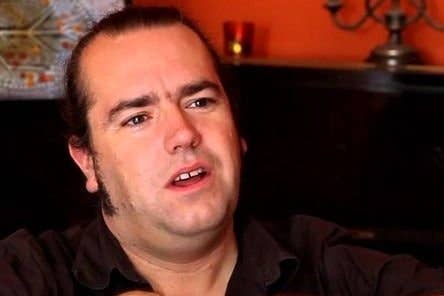Indies, don't sell shares in your company - Jon Hare
Sensible Software co-founder warns young developers about the dangers of seeking money from VCs
Sensible Software co-founder Jon Hare is on a tour, giving aspiring game developers across the world his views on how business has changed since the old home computer gaming days and how lessons learned from that old era ought to be applied to deals in the modern mobile and digital era. In the presentation called "Independent development through the years and how to survive the corporate invasion," Hare warns young developers - above all else - not to yield control in their startup companies.
The temptation to sell any shares in your company can be great when you're young and struggling to make ends meet. "When you made that transition from being a student to actually doing it as a job, you start thinking about things like 'how am I going to pay for my house and my food?' The fun bit of making games becomes not fun when you're poor. The idea that you can make a good quality game as an evening job while doing another job...doesn't really work if you want to make top-end stuff," he noted.
Young developers must either learn about business or work with people who can handle business because decisions made early on can have a lasting impact. "Making a mistake in those early years can tie you up like a ball-and-chain for the rest of your life, or career within that company. You may have to leave it to get some freedom," Hare said.
The problem, as Hare sees it, is that VCs are mucking up the system, and the young indies don't know any better since they don't have experience and they're too young to remember the safer business deals often arranged during the home computer gaming era.
"The publishers have dried up so you can't go to two or three people to get your best deal now. The disadvantage of VC funding is they're going to tell you what to do sooner or later since they own shares in your company," he said.
"It's important for all artists... to not be looking over their shoulder at the bottom line of the company. It destroys creativity - you need stability"
"If you're extremely lucky you'll turn into a company like...some of the numerous successful independent companies that have existed over the eras, or even like the company that made Limbo - that kind of company which is quite small and had a hit. That would be a massive success for you guys. That doesn't require loads of shareholders, that doesn't require that you set yourself up like a Bay Area tech company backed by VCs looking for a minimum of $15 million exit. When you set your company up, think about what you're likely to do... and set up the business models appropriately."
There was a tinge of bitterness during Hare's presentation, and he fully admitted it. Hare said he's among the older developers who blame small indies today for devaluing the market.
"I look at this current thing where people are selling games for nothing with no guarantee for income and all I see is a destruction of what we built up back in the old days. The way we used to run our business was very safe, and we very rarely put ourselves in financial jeopardy," he said.
"We had fixed incomes and fixed outgoings. This stabilizes everything and what that gives you is creative power. You're not fearful financially while you're making stuff. It's important for all artists... to not be looking over their shoulder at the bottom line of the company. It destroys creativity - you need stability."
Rather than selling shares in your company, Hare advises that indies make deals based on product. "Until you sign that deal, the IP is 100 percent yours. You don't need to give it all away. You can carve it up platform by platform, country by country, year by year, and protect it... Ownership equals control. Protect your share and your IP. Don't rush into it, do the right deals," he stressed.
As an example in today's mobile market, Hare said IP could be leveraged on different platforms. "You're going to help me by distributing on iPhone and Android and you get 30 percent, but I'm going to hold the Sony stuff because I might do a deal with someone else on that," could be a hypothetical way to carve it up by format, he said. It's also critical that developers work with contracts, he noted. "Work with lawyers and accountants, you need them. Understand how they work [because] you get control in business from contracts," he said.
Ultimately when you're launching a startup you have to be prepared to endure some hard times. "If you start a company for the first six months you're going to earn nothing," he warned. And during this crucial time, developers can't accommodate weak links on the team. "Don't accommodate your friend - if he's a bad artist, get rid of him," Hare said.
Holding up his own company as a model, Hare noted that keeping total ownership was a win-win. Sensible Software made 49 percent annual profit over 13 years, and after that they went on to sell the company. "We didn't sell a single share to make that money and then we sold the company after to make more money. This is what happens when you retain power in your company," Hare said.
You can check out the entire talk given at Staffordshire University below.


